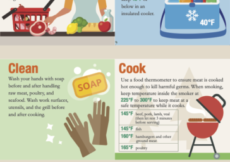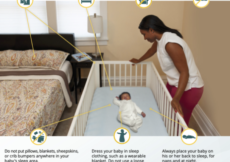December 27th, 2021
Two years of providing medical care during a dangerous and heartbreaking pandemic isn’t enough for Meredith Barrett, M.D. to lose her love of medicine despite all the ups and downs:
Medicine, you are hard to describe to someone who doesn’t know your ways. The long hours, the absent holidays, the missed weddings and funerals. The pager that can go off at any minute. The standardized tests that seem unnecessarily expensive and stressful. You aren’t always fair and sometimes you seem incredibly cruel — the unresectable cancer, the tragic accident, the misdiagnosis that results in unintended harm. These are all part of you, medicine, they keep me up at night and often make me question if you are right for me.
As Omicron pushes Delta out of the way as the dominant SARS-CoV-2 variant, physician offices and hospitals have once again reached their breaking points. Relentless stress has taken a toll on doctors, nurses, and other health professionals, and many of them have left the profession, maybe permanently. Not Dr. Barrett:
And let’s not even talk about the past two years — our relationship has been pushed to an extreme that I never could have imagined when I chose you. The masks, the isolation, visitor policies, public distrust. Medical school didn’t teach me how to care for patients in seclusion, how to best express empathy over an iPad, how to explain to families why they can’t be with their loved ones, or why their loved ones won’t make it. Others in the healthcare system have faced much worse than me and lost so much more
Yet, I still feel our relationship has been put to the ultimate test. Your system is broken, your faults need reform.
But I still love you.
Jessica Kiarashi. M.D. has also been remembering how she fell in love with her chosen profession. Like Dr. Barrett, from an early age Dr. Kiarashi wanted to be a doctor:
I reflected back on my own journey in medicine and the romantic idea I once had about what being a physician would be like. I’ve always had an innate propensity to help people, and while it sounds cliché, I’ve wanted to be a doctor for as long as I can remember. I was willing to do whatever it took to make my dream a reality. While people were generally encouraging, there were always those who warned us to tread with caution. The voices of wariness always warn us about the more tangible hardships: the impossible feat of getting into medical school followed by perpetual nights of studying, and the challenges of landing a residency and actually surviving that residency. But no one tells you about the recurrent moments of existential crisis and self-doubt.
“You will experience some of your darkest days,” Dr. Kiarashi warns other “hopeless romantics”. There will also be glimmers of light, she says, “but admittedly, they are becoming few and far between during these pandemic days.”
The pandemic has tested everyone, but particularly those in healthcare. We are no longer losing the battle to an incurable cancer or a neurodegenerative disease, but we are losing the battle to misinformation. Yes, at one point, COVID-19 too was an obstacle that seemed insurmountable, but our scientific community worked swiftly and diligently to develop the vaccines. Yet, people are not heeding our advice to mask up and get vaccinated.
Dr. Kiarashi wonders:
How did we get here? How did we get to a place where the moments that made it all worth it — saving a life, watching a family celebrate a loved one’s recovery, receiving tokens of thanks from our patients — get thrown back in our faces as patients make it clear that our expertise is no longer needed? We have read the accounts of “compassion fatigue” by healthcare workers who have been working tirelessly in the COVID-19 units and have no empathy left for those who decided against getting vaccinated. We have echoed the pleas to get vaccinated non-stop. We have done our part and will continue to do so every day until we are out of breath and out of words.
As challenging as caring for other human beings can be in times like these, Dr. Kiarashi isn’t out of breath or words:
To all the hopeless romantic doctors-to-be watching this all unfold: while it’s gut-wrenching to see our mission to help people being stomped on by political agendas and pseudoscience, do not lose your desire to do good[…] To all the hopeless romantics, the journey is treacherous and fraught with failure and heartache, but all good romances are.
Dr. Barrett isn’t giving up on her true love either:
Medicine, thank you for always being there for me. Thank you for making my life beautifully complex and rewarding. Thank you for allowing me to see humans in their times of greatest need and enabling me to provide a cure. Thank you for teaching me the skills to provide comfort when a cure doesn’t exist.
Like many relationships, I didn’t truly know what I was getting into when we met, and though my childhood dreams set very lofty expectations, this partnership has exceeded them all.
I love you,
— Meredith
Read “Dear Medicine, I Love You” by Dr. Meredith Barrett here.
Read “An Open Letter to the Hopeless Romantics in Medicine” by Dr. Jessica Kiarashi here.




































